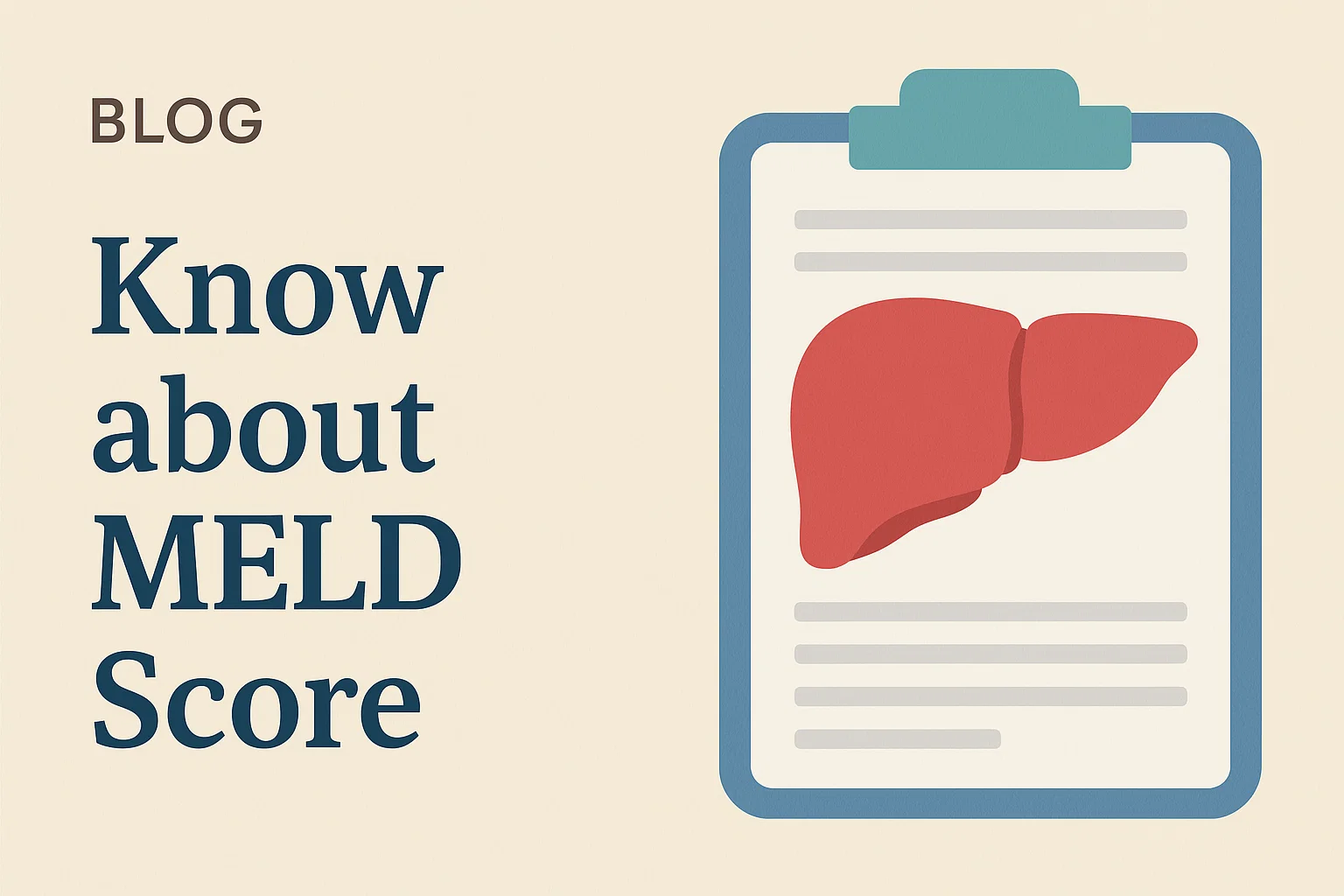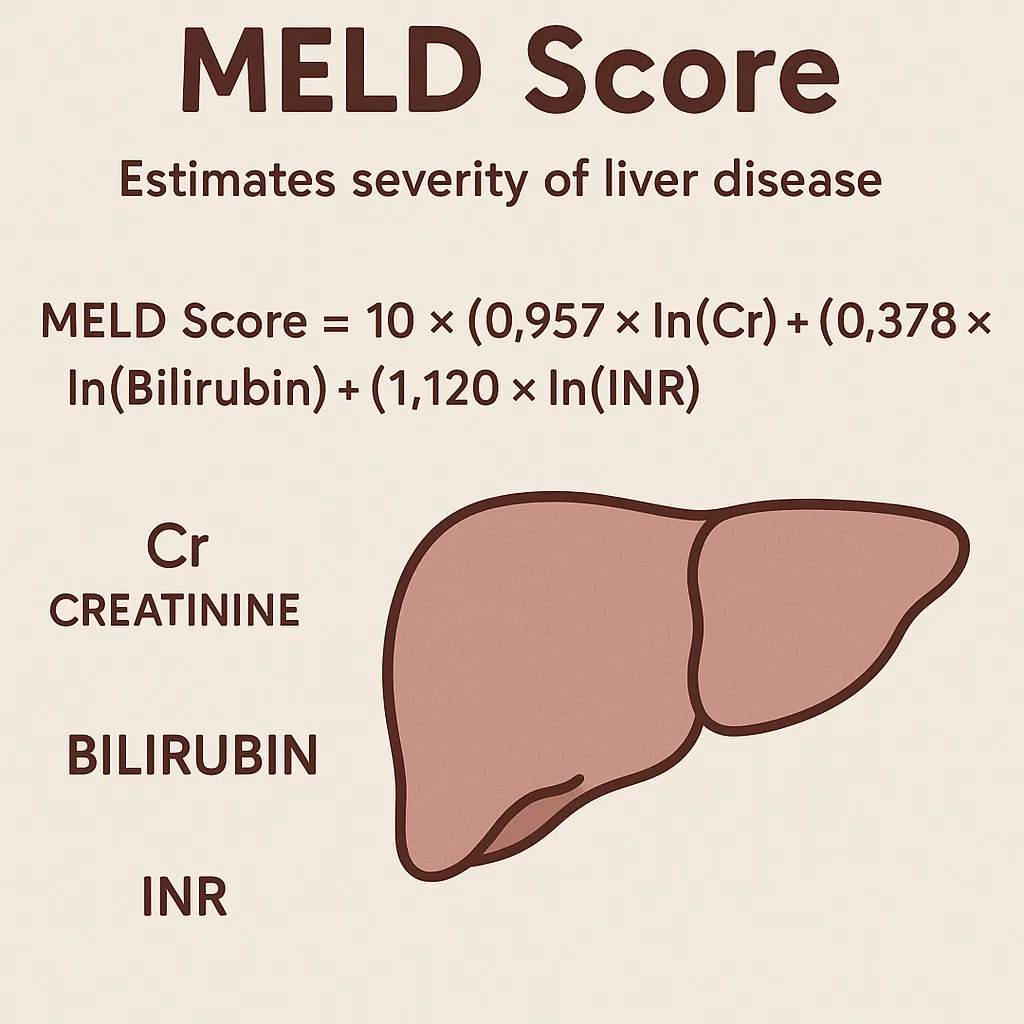
What is a MELD score? – Liver Transplant in Coimbatore
The MELD score (Model for End-Stage Liver Disease) helps prioritize liver transplants for patients aged 12 and above, based on the urgency within the next 90 days. For children under 12, the PELD score (Pediatric End-Stage Liver Disease) is used instead. Both scores guide transplant centers in deciding who needs a liver transplant most urgently.
The MELD score, ranging from 6 to 40, shows how serious your liver disease is. A higher score means greater risk and higher priority for a transplant. It’s calculated using key blood test results.
- INR: Shows how fast your blood clots — slow clotting can signal liver trouble.
- Bilirubin: High levels mean your liver isn’t clearing bile effectively.
- Creatinine: Reflects kidney health, which declines as liver disease worsens.
- Sodium: Low sodium in blood may point to liver dysfunction.
- Albumin: Low protein levels suggest the liver isn’t producing enough to keep fluid in your bloodstream.
The MELD score assists in guiding liver transplant timing, although it’s not the only factor. Doctors also consider your specific liver condition and overall health.
Test Details
How is a MELD score calculated?
A MELD score is based on a blood sample but involves more than just lab results. Doctors use a specific formula that also factors in other clinical indicators.
Doctors also look at your liver disease type and severity, age, sex, existing health issues, and lifestyle factors that may impact transplant success.
If your MELD score doesn’t fully show how critical your condition is, your doctor can request additional points. Certain medical conditions may qualify for this exception.
- Sudden Failure of Liver: A quick loss of liver function that can be life-threatening.
- Liver cancer: Certain types may qualify for higher priority despite low MELD scores.
- Hepatopulmonary syndrome: A liver-related condition that lowers blood oxygen levels.
- Portopulmonary hypertension: Elevated lung blood pressure linked to liver disease.
- Polycystic liver disease: It is a rare inherited disorder that causes multiple liver cysts.
- Recurrent cholangitis: Persistent infections in the bile ducts that can trigger severe health complications over time.
Ask your Hepatologist about what goes into your MELD score and how it helps determine your need for a liver transplant. Liver Specialists(Hepatologist) will definitely explain it to you and answer the questions that you may have.
How Often Do Doctors Recheck Your MELD Score?
Your doctor monitors your condition through routine blood work, and your MELD score is updated based on those results. How often it’s checked depends on your most recent score. While there are general timelines, only your healthcare provider can decide how often updates are needed for your specific case.
| Score(MELD) | Frequency |
| 25 or higher | Weekly |
| 19 to 24 | Monthly |
| 11 to 18 | Quarterly |
| 10 or less | Yearly |
Results and Follow-Up
Understanding the Meaning Behind Your MELD Score

Your MELD score gives your medical team insight into how serious your liver condition is. It helps estimate your short-term survival risk—specifically over the next 90 days—and signals how urgently you may need a transplant. While it doesn’t predict exact life expectancy, it plays a key role in deciding your priority on the transplant waiting list.
| Score(MELD) | 90-day mortality risk |
| Less than 9 | 1.9% |
| 10 to 19 | 6% |
| 20 to 29 | 19.6% |
| 30 to 39 | 52.6% |
| Higher than 40 | 71.3% |
Your MELD Score: A Key Factor, Not the Whole Story
While your MELD score is important, it’s not the sole factor in estimating when you might receive a liver transplant. Your blood type, local donor availability, and regional transplant logistics also influence the timing. It’s a combination of medical need and matching opportunities.
For Liver transplant related issues and problems, please contact Dr. Hemamala – Lead Hepatologist and Founder, The Liver World in Coimbatore.

Leave a Reply